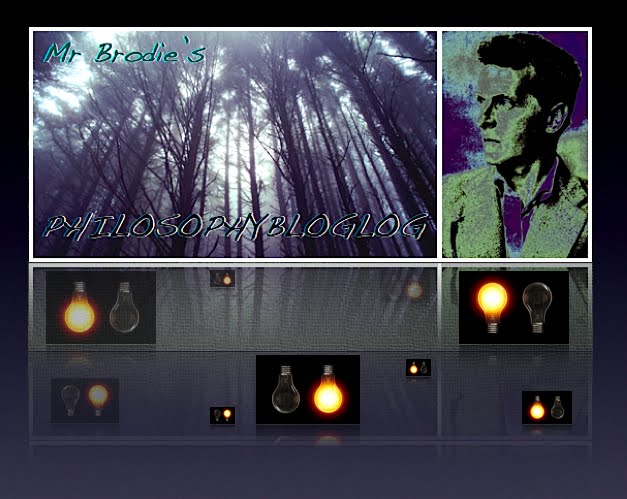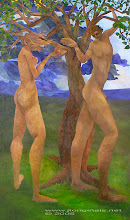Spent all day yesterday revising! Here are the beginnings of my notes: I can't put anymore on here now or I will be divorced! Do the rest yourself & Free Will and Determinism in a similar manner - pick out the main points and write a notes around them, then we will scoot through them on Monday!! :)
Remember the whole point of this unit is in the title - how do we have ‘Knowledge of the External World’?
Direct naive Realism: The world is as I perceive it - my perception exhausts reality - I get all there is to get - nothing remains hidden behind a ‘veil of perception’.
Defeated by illusion, hallucination, perceptual variation & physics - reality is not as we perceive it.
Philosophical Direct Realism: J.L. Austin - illusion occurs externally at the level of the object; refraction is a fact of the physical world that we perceive correctly. (Barn / Churches)! Hallucination is more problematic, but can be distinguished because it is ‘anomalous’ (Homer Simpson behaving sensibly).
Representative Realism - Russell - Sense Data: To solve the problem of perceptual variation etc. Russell argues that as what I perceive changes and the object clearly doesn’t change I am not perceiving the object. So he suggests ‘sense data’ as mental phenomena that mediate between the external world and my perception of it.
Against this we could say that perceptual variation / relativity is only a problem if you think it is somehow possible that there could be an ‘absolute vantage point’ - a ‘God’s eye view’ of an object that was somehow over and beyond any single perspective yet encompassing all possible perspectives. If not we should just conclude that perceptual variation is just a physical fact of how objects (and us) are in the world. There is no need to invent a separate kind of thing to called ‘sense data’ perspectival relativity.
A Working Hypothesis and a Map
Remember that Russell only claims that his theory is Working hypothesis but he suggests that because we are able to have conversations about the ‘external world’ then it is reasonable to claim that are ‘sense data’ correspond’ to it - at least to the extent that a map corresponds to the terrain it represents. This might lead us to talk about Wittgenstein’s beetle and the way meaning is actually in the use of public language.
How does the mental connect with physical? The other problem for Russell is that his ‘sense data’ are ‘mental’, so he has the ‘dualists’ problem of explaining how the mental interacts with the physical.























No comments:
Post a Comment